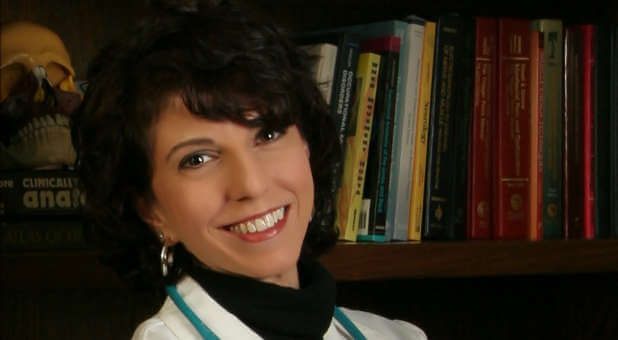You don’t have to go to medical school to know where food goes after you swallow it. Any first grader can tell you it goes into your stomach, not your heart.
Still, many people eat for emotional (heart) reasons rather than physical (stomach) reasons, and they struggle with their weight because of it. I know I did. I grew up morbidly obese and weighed 207 pounds when I was five feet tall!
So often, we try to fix our negative emotions with what I call “false comforters” —quick fixes, like food, that make us feel worse rather than better in the long run. I know this from my own bloated personal experience, having been grossly overweight.
Food is only one of many false comforters. Other people use drugs, alcohol, gambling, shopping, working, and even hobbies the way I once used food. They turn to those things to fill up those empty places that only God can fill. Or they develop physical pain problems and other stress-induced conditions in response to stressful emotions—conditions such as fibromyalgia, migraine headaches, neck and back pain, irritable bowel syndrome, pelvic pain, depression, anxiety, and others. I know this because I’m a pain management specialist physician and see this stress-turned-physical phenomenon daily.
As for me and my weight problem, I learned from my studies of obesity psychology while at Cornell how to eat in response to my body’s natural hunger and fullness signals rather than stress, anxiety, and other unwanted emotions. That’s how I was able to lose 75 pounds and keep it off for almost 30 years, now, thank God.
What about you? Maybe you don’t have a weight problem. Maybe your problem is something else. Everybody deals with some kind of thorn in their side, after all.
No matter what your specific issue is, probably the root cause is something like what I experienced. There’s a good chance you’re being triggered into unhealthy behavior by lies that you believe about yourself—lies that you internalized during childhood, such as “I’m [bad, stupid, ugly, responsible, worthless, unlovable, alone, abandoned, invisible],” or “I’m just like [my bad father, my bad mother]” or “I’m nothing like [my perfect father, my perfect mother].” Perhaps you internalized those lies during a traumatic time in your life, but maybe you just “read between the lines” of how others treated you back then.
Maybe other issues are at play, too. Maybe you’re under stress because you’re running from shame over your past sins—even those you already repented from. Or maybe you’re harboring resentment toward people who hurt you in the past.
I once heard that refusing to forgive people is like taking poison and expecting it to hurt the other person. I think that’s true.
As I said, very frequently, I see the physical effects of three factors among my patients (1) lies that we believe about ourselves; (2) sins that we haven’t repented from and given up to God; and (3) unforgiveness. That’s why I want to encourage you, for the sake of your health (not to mention cutting the cost of your medical bills) to get real with yourself and with God.
The first step is to take your thoughts captive. When you’re tempted to partake of your false comforter (i.e. when you’re tempted to reach for the bottle or the donut), stop and ask, “Lord, help me identify the emotion I feel right now. Is it anxiety, anger, fear, loneliness, etc.?”
Go on to ask, “Lord, show me the root of this emotion. When is the earliest time I felt this way in my life?” And “What lies did the Accuser lead me to believe about myself during that difficult period?” And what truth do You want to show me to replace those lies?”
To find out more ways to break free from those lies, sins, and unforgiveness that bind you and threaten your health, look for my book, Radical Well-being: A Biblical Guide to Overcoming Pain, Illness, and Addictions, released this week.
And if you get discouraged at any point along the way in your emotional healing and recovery, remember this: in your life-long quest to achieve better health, God’s mercies aren’t new only once a year, on New Year’s Day, they’re new every morning.
Rita Hancock, M.D. is board certified in physical medicine and rehabilitation. Her sub-specialty is pain medicine, in which she is also board certified.







































